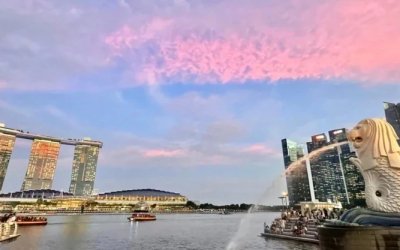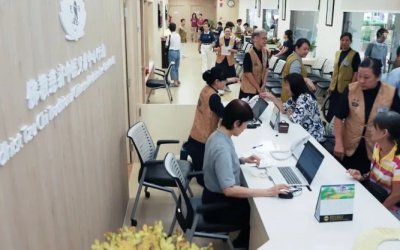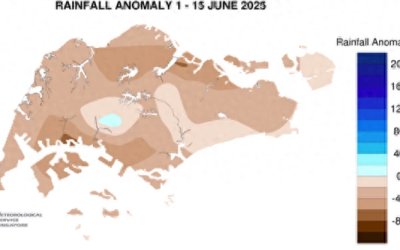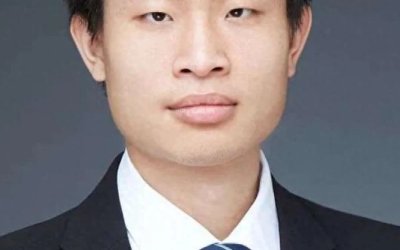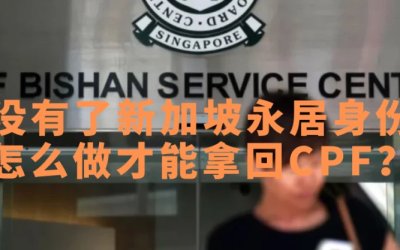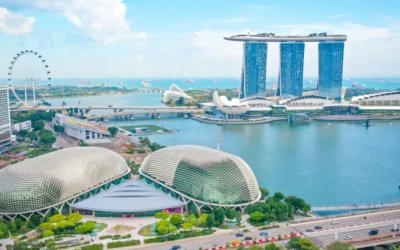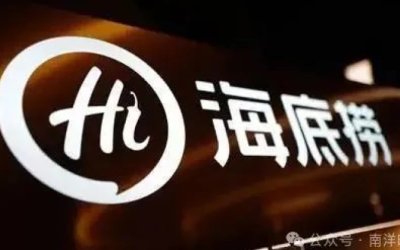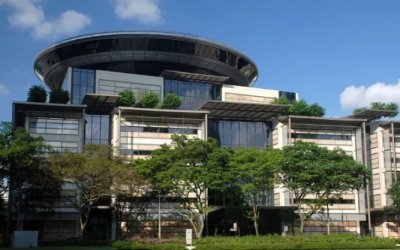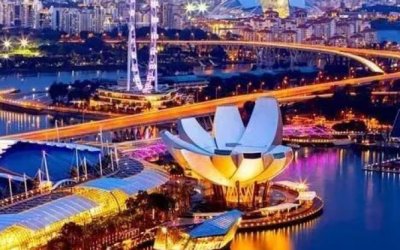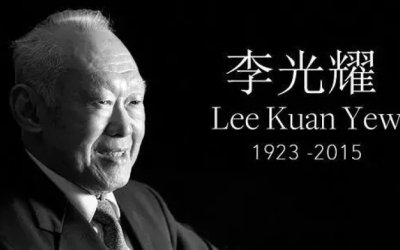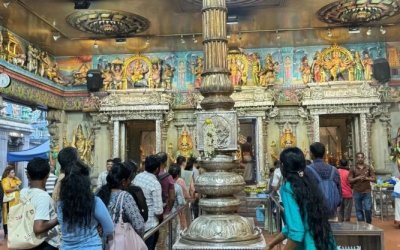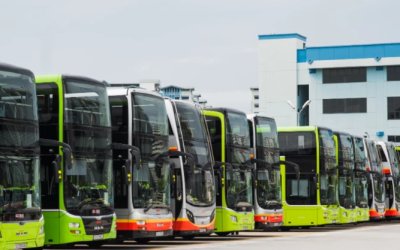跨越不同領域
建設「參與城市」大學
2023.11.21 SMU X RUC
⊙ 跨越不同領域,建設「參與城市」大學--SMU在2023年綠色金融相關全球論壇上分享獨特觀點
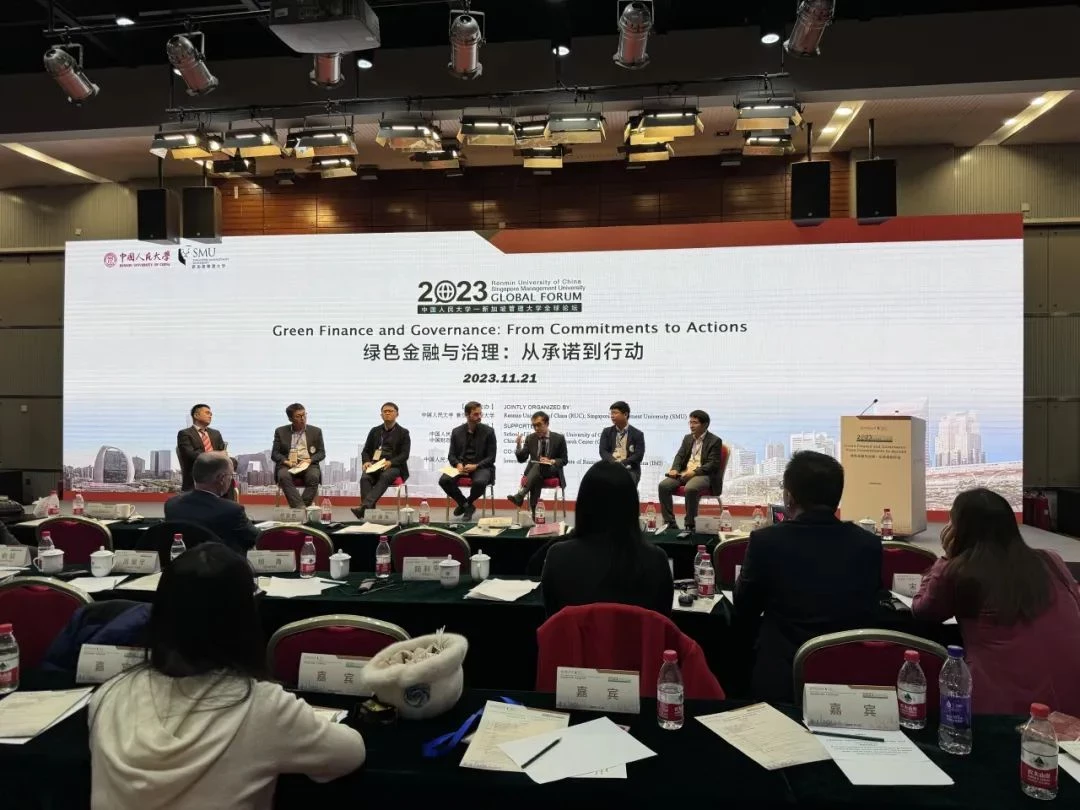
2023年11月21日,由新加坡管理大學(SMU,簡稱新大)和中國人民大學(RUC,簡稱人大)聯合主辦的「綠色金融與治理:從承諾到行動」全球論壇在北京召開。論壇彙集了來自新加坡、中國及世界各地的專家、業界領袖以及學界代表。在論壇上,新大代表與其他現場嘉賓一同分享和交流了有關「綠色金融與治理」的獨到的見解和經驗。
在開場致辭中,新大教務長柯莫西(Timothy Clark)代表新大對人大表示感謝,對出席此次論壇的嘉賓表示熱烈歡迎。隨後,他表示,「新加坡管理大學的願景是致力通過跨學科和有影響力的研究來應對社會挑戰和問題,這與我們的三大戰略重點——數字化轉型、可持續生活和亞洲增長是一致的」,學校也一直積極尋求與新加坡和周邊地區具有相似願景的夥伴建立合作。柯莫西教授還提出大學在驅動變革中的作用,特別是在學術研究和產業專業知識方面的整合,以及大學在推動綠色金融發展中的貢獻。
新大李光前商學院副教授、Ho Bee可持續發展管理講席教授、新加坡綠色金融中心聯合主任梁昊教授以「綠色金融:機會與風險並存」為主題發表演講。他在演講中呼籲採取轉型融資,即向傳統「棕色企業」提供資金以幫助其提高能源效率和逐步向「綠色企業」轉型;他介紹了一個可以評估企業的凈影響值的框架模型,通過將不同影響因素進行定量評估和權重設計,綜合考慮對金融、社會和環境的影響,從而指導投資決策。此外,梁教授還分享了新加坡綠色金融中心與大學合作的項目,旨在整合不同的評估標準,創造一個完整的影響力評估和報告框架。他強調了通過國際合作,將不同領域進行設值、定量和數據生成,為企業的可持續發展和實現零碳排放目標提供支持。
新大李光前商學院戰略與創新助理教授、全球紅樹林信託基金和Handprint.tech公司的聯合創始人和董事Simon J.D.Schillebeeckx教授在圓桌討論中表示,新加坡非常善於內化並吸收其他國家的經驗,並將其轉化為本土經驗;在ESG治理方面,新加坡已經邁出了幾個關鍵性步驟。他還提到了歐洲在氣候變化領域的領導力,更強調了全球合作是實現可持續發展不可或缺的要素。他認為,即使歐洲能夠實現碳中和,沒有其他國家的支持和碳足跡的減少,也無法解決全球氣候變化問題。在回答關於ESG和政府目標的問題時,Simon教授強調了政府在可持續發展目標中的重要角色。他認為政府應該負責管理氣候等核心領域,並指出ESG和政府目標可以相互促進。同時,他關注政府在金融機構最後執行和評估方面的責任,強調了問責的必要性。
在會後的採訪中,新加坡管理大學合作與交流總監林姍姍教授指出,新大通過其深入的研究和教學,旨在讓學生對亞洲各種議題有更深刻的了解。而作為一所「參與城市」的大學,新大不僅關注社會中的重大挑戰,而且期待未來能與更多中國頂尖大學合作。這樣的合作將為雙方提供機會,在全球論壇等平台上與中國學術界和行業領袖進行對話,共同探討環境可持續發展、數字轉型等重要議題。這種協作不僅對新大的國際聲譽有著積極的提升,也有助於推動深入研究和解決當今社會面臨的諸多挑戰。
本次全球論壇的召開,為解決社會焦點問題和推動學術界、政策制定者和商業界的合作提供了前沿平台,新大代表在論壇上發表的觀點和見解,展現其作為一所「參與城市」的大學的抱負——專注於跨學科專業的構建和有影響力的研究,應對當今社會所面臨的各種挑戰。這不僅表明了新大的前瞻性眼光和廣闊的學術格局,也凸顯了其為新加坡建設智慧國所作出的不懈努力和卓越貢獻。
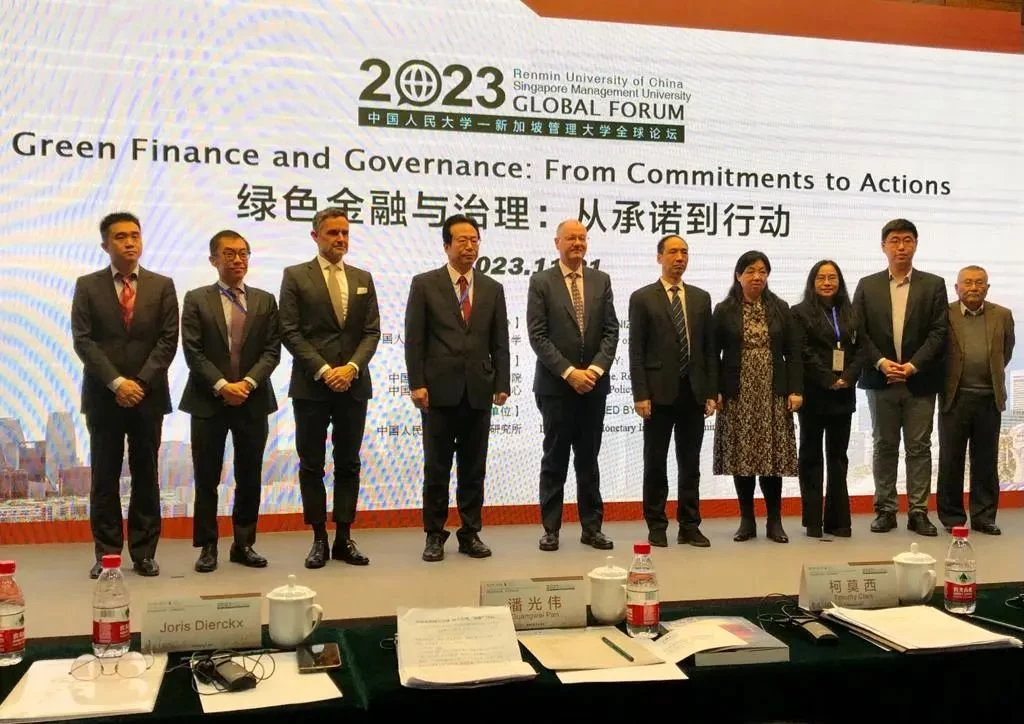
⊙ Spanning Diverse Domains to Build an Engaged City University - SMU shares Unique Perspective at Global Forum 2023 in Beijing
The "Green Finance and Governance: From Commitments to Actions" Global Forum, co-organised by Singapore Management University (SMU) and Renmin University of China (RUC), was concluded on 21 November, 2023. The Forum brought together experts, industry leaders and academics from Singapore, China and around the world. SMU representatives shared their insights and experiences on the theme with other guests and attendees at the Forum.
In the opening speech, SMU Provost, Prof Timothy Clark, representing SMU, expressed gratitude to RUC and a warm welcome to the forum participants. He said, "SMU's vision is dedicated to addressing societal challenges and issues through interdisciplinary and impactful research that are aligned to our three strategic priorities, namely Digital Transformation, Sustainable Living, and Growth in Asia." SMU actively seeks collaborations with partners in Singapore and neighboring regions who share similar visions. Prof Clark also highlighted the role of the university in driving change, especially in integrating research and industry expertise, as well as the university's contribution to advancing green finance development.
Prof Hao Liang, Associate Professor of SMU Lee Kong Chian School of Business (LKCSB), Ho Bee Professorship in Sustainability Management and Co-Director of Singapore Green Finance Centre, made a keynote speech on the topic of "Green Finance: Opportunities and Risks at the Same Time". In his speech, he called for the adoption of transition financing, i.e. providing capital to traditional "brown businesses" to help them improve energy efficiency and gradually transform into "green businesses". He introduced a framework model for assessing the net impact value of an enterprise, which guided investment decisions by quantitatively evaluating and weighting different impact factors, taking into account the financial, social and environmental impacts. In addition, Prof Liang shared projects of Singapore Green Finance Centre in collaboration with universities, which aimed at integrating different assessment criteria to create a complete impact assessment and reporting framework. He emphasised the importance of international cooperation, setting values for different fields, quantification, and data generation to support businesses' sustainable and zero-carbon emission goals.
During the panel discussion session, Prof Simon J.D.Schillebeeckx, Assistant Professor of Strategy and Innovation of SMU LKCSB, Co-founder and Director of the Global Mangrove Trust and Handprint.tech, said that Singapore is very good at internalising and absorbing the experiences of other countries and translating them into local experiences; in terms of ESG governance, Singapore has taken several key steps. He also referred to Europe's leadership in the area of climate change and emphasised the indispensability of global cooperation for sustainable development. He argued that even if Europe could achieve carbon neutrality, global climate change could not be solved without the support of other countries and the reduction of their carbon footprint. In response to a question about ESG and government goals, Simon emphasised the important role of governments in the SDGs. He argued that governments should be responsible for managing core areas such as climate, and noted that ESG and government goals can be mutually reinforcing. He highlighted the importance of accountability in the final execution and evaluation by the government, emphasising the need for governments to play a role in achieving a better green finance transformation.
In the interview after the meeting, Prof Sun Sun Lim, SMU Vice President (Partnerships and Engagement), pointed out that SMU aims to provide students with a deeper understanding of various issues in Asia through its in-depth research and teaching. As an engaged city university, SMU not only focuses on the major challenges in society, but also looks forward to cooperating with more top Chinese universities in the future. Such collaborations will provide opportunities for both parties to engage in dialogues with Chinese academic and industry leaders on platforms such as global forums to discuss important issues such as environmental sustainability and digital transformation. This collaboration will not only be a tremendous boost to the international reputation of SMU, but will also help promote in-depth research and solutions to the many challenges facing society today.
The Global Forum provided a platform to address key societal issues and promote collaboration between academics, policymakers and the business community, and the perspectives and insights expressed by SMU representatives at the Forum demonstrated SMU ambition to be an "engaged city" university - one that focuses on building interdisciplinary specialisms and impactful research to address the challenges faced by society today. This not only demonstrates SMU’s forward-looking vision and broad academic landscape, but also highlights its tireless efforts and contributions to building a Smart Nation for Singapore.


